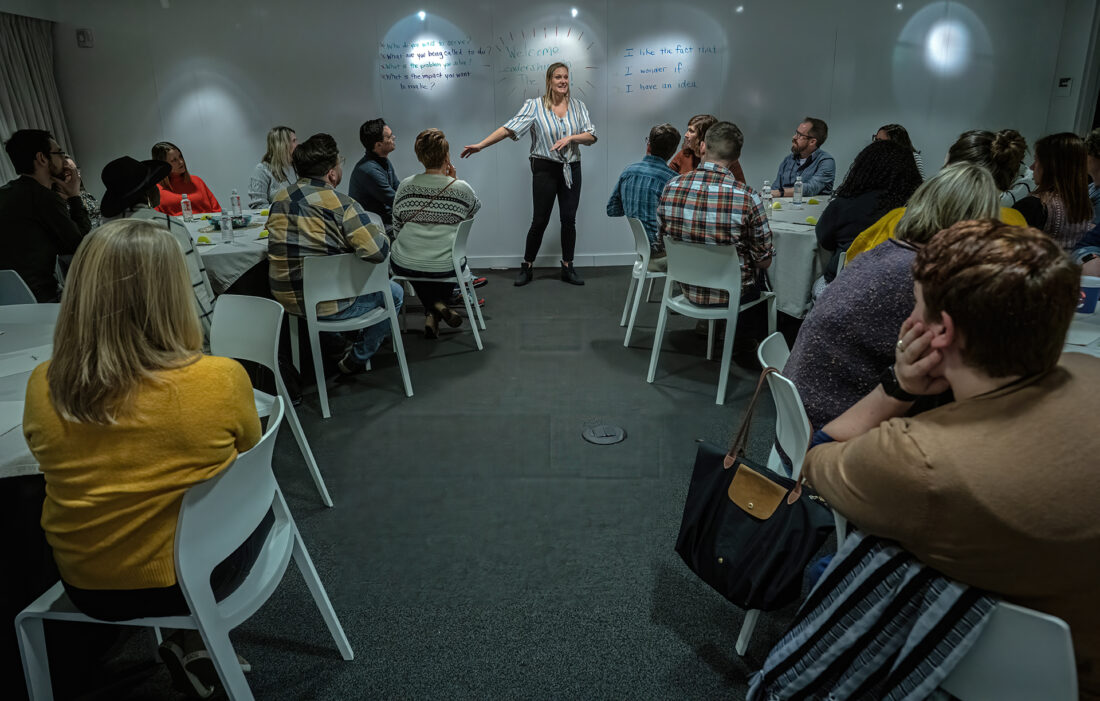Well-Being at Work: The Role of Embodiment in Fostering Team Engagement
In the fast-paced world of modern workplaces, fostering a strong sense of connection and engagement among team members is more crucial than ever. One powerful yet often overlooked tool in achieving this is the incorporation of embodiment practices into the work culture.
What are Embodiment Practices?
Embodiment practices involve bringing attention to the body, promoting mindfulness, and enhancing self-awareness. These practices go beyond the traditional scope of team-building exercises and delve into the realms of movement, breath, and holistic well-being. Engaging in embodiment practices can range from simple activities like stretching and mindful breathing to more structured practices such as drawing or tai chi.
Breaking the Virtual Barrier
In virtual workspaces, the physical distance between team members can create a sense of disconnection. Embodiment practices offer a unique solution by grounding individuals in the present moment, helping them break free from the constraints of screens and fostering a more profound connection with their own bodies.
Through regular embodiment exercises, individuals can bring a fresh sense of energy to their teams, transcending the limitations of virtual communication. This creates a sense of unity and camaraderie, even across geographical distances.
Enhancing Focus and Productivity
One of the remarkable benefits of embodiment practices is their positive impact on mental clarity and focus. By incorporating short movement breaks or mindfulness sessions into the workday, teams can recharge their energy and reduce stress levels. This, in turn, leads to enhanced concentration, creativity, and overall productivity.
When individuals are attuned to their bodies, they are better equipped to manage stress and navigate challenges effectively. This heightened self-awareness can have a ripple effect on team dynamics, promoting a positive and resilient work culture.
Cultivating Emotional Intelligence
Embodiment practices also play a crucial role in developing emotional intelligence within teams. As individuals become more in tune with their own emotions and bodily sensations, they gain a deeper understanding of themselves and their colleagues. This increased awareness fosters empathy and effective communication, essential elements for building strong, cohesive teams.
Implementation in the Workplace
Integrating embodiment practices into the workplace doesn’t require a drastic overhaul of existing structures. Simple initiatives, such as incorporating exercises during virtual meetings or offering optional mindfulness sessions, can make a significant impact.
Encouraging team members to explore various embodiment practices and find what resonates with them individually can also empower employees to take ownership of their well-being. Providing resources, whether in the form of virtual classes, workshops, or recommended apps, can further support the integration of these practices into the team’s daily routine.
Let’s Work Together
In the pursuit of heightened team engagement, considering the role of embodiment practices is a progressive and holistic approach. By acknowledging the mind-body connection and incorporating practices that enhance well-being, teams can not only navigate the challenges of remote work more effectively but also cultivate a thriving, interconnected work culture. Embracing embodiment practices is not just a trend; it’s a transformative journey toward creating workplaces where individuals feel seen, heard, and deeply connected.
Let’s work together to create more connections in your organization. I offer 1-hour lunch and learns, half-day and full-day workshops, and a 12-week virtual program. Email info@bethinglish.com to schedule a call.



